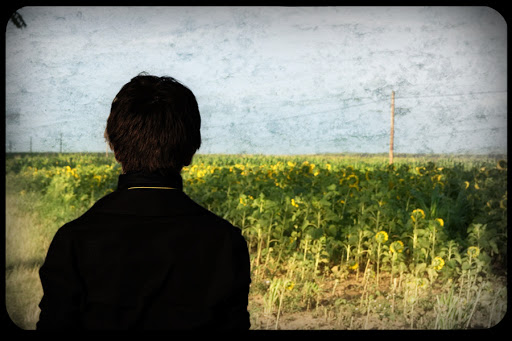When I was in First Communion class, Sister explained to us the various parts of the Mass and their meaning.
“Before you receive Communion, you make the sign of peace, which shows that you want to share Christ’s peace with all the people around you. But you also should want to share Christ’s peace with all the people in your life, even the ones you’re having trouble with,” she said.
As a second grader, I was fine with this. I could shake little Sally’s hand and smile in her face during school Masses—as long as I didn’t have to play with her on the playground. And the other folks in my life that I was “having trouble with?” Well, I never saw any of them at Mass, so I had nothing to worry about.
Or so I thought.
As I got older, I realized that the sign of peace is more than a quick hand shake. It’s supposed to be a witness to the Christian belief that true peace is a gift of Christ’s death and resurrection. The sign of peace is meant to remind us that, before we approach the altar, we’re called to make amends with all people, and to sincerely wish them God’s peace.
At the sign of peace, we should be reminded of Jesus’ words to his disciples:
But I say to you, whoever is angry with his brother will be liable to judgment, and whoever says to his brother, "Raqa," will be answerable to the Sanhedrin, and whoever says, "You fool," will be liable to fiery Gehenna.
Therefore, if you bring your gift to the altar, and there recall that your brother has anything against you,
leave your gift there at the altar, go first and be reconciled with your brother, and then come and offer your gift. (Mt 5:21-24)
Jesus’ words are particularly pertinent as we prepare to receive Communion, because we’re required to receive our Lord’s Body and Blood with a clean heart. But, he intends them to be much more than that. He intends them to be a directive for the way we live our entire lives.
Certainly, that’s easier said than done. Things happen. People hurt each other. We blunder. We blurt out words we didn’t intend to say. We misunderstand, judge, assume, and fight. Sometimes we even cause pain intentionally out of our own brokenness or desperation. We let the differences tear us apart and the fights divide us. Pride and stubbornness keep us separated. We hold to the fact that we were “right” and feel justified in our estrangement. Even if we were wrong, we convince ourselves that we have a right to remain estranged. No one wants to bend, no one wants to admit mistakes or offer forgiveness. No one wants to make the first step toward reconciling.
How many families have experienced estrangement at one time or another? Yours? Mine? Probably all of ours. And probably the families of most of the people we know. Maybe there are family members we haven’t spoken to for years, whether it was at our initiative or theirs. Why don’t we, why can’t we, forgive?
Estrangement causes a vacuum, of sorts. Days, months, years, decades, and even lifetimes can pass without our even realizing it. The saddest part is that, if we could think about it objectively, whatever caused the difficulties probably wouldn’t matter in the long run. It’s our pridefulness that makes it a major obstacle.
We recently visited my mother, who is in a health care facility for the elderly. One of the residents there has been estranged from her children for decades, resolute in her distancing. The woman, the nurses told me, is now in the throes of dementia. Even if she had visitors, she might not recognize them, and surely would have forgotten their visit the next day. She’s lived in her vacuum of estrangement all of these years. Even if it ended this moment, she’s not aware enough to appreciate the reunion.
I think, too, of those of us who are younger. My 18-year-old nephew was in a car accident today and is in the ICU. At the time of this writing, no one knows what will happen. I have faith that he will recover and go on to lead a fruitful, long life. But, some people don’t survive car accidents. What if someone from whom we’re estranged becomes one of the fatalities? It would be too late to end the estrangement and set things right.
The holidays are fast approaching, the time of year in which we tend to most keenly feel the emptiness and grief of estrangement. It’s time to ask ourselves whether we truly want to continue in our vacuum, or whether we truly want to be reconciled with those from whom we’re estranged. It doesn’t matter who or what was the cause; we should work toward reconciling anyway, because that’s what our Lord asks of us.
Perhaps we’re not ready to reach out our hand in peace right now, but we can pray for the grace to want to do so. God will answer our prayers. The grace will be there, and then we’ll be able to offer our gifts at the altar.
Marge Fenelonis a Catholic author, columnist, and speaker and a regular guest on Catholic radio. She’s written several books about Marian devotion and Catholic family life, including Strengthening Your Family: a Catholic Approach to Holiness at Home (Our Sunday Visitor, 2011) and Imitating Mary: Ten Marian Virtues for the Modern Mom (Ave Maria Press, 2013). Find out more about Marge at www.margefenelon.com.

